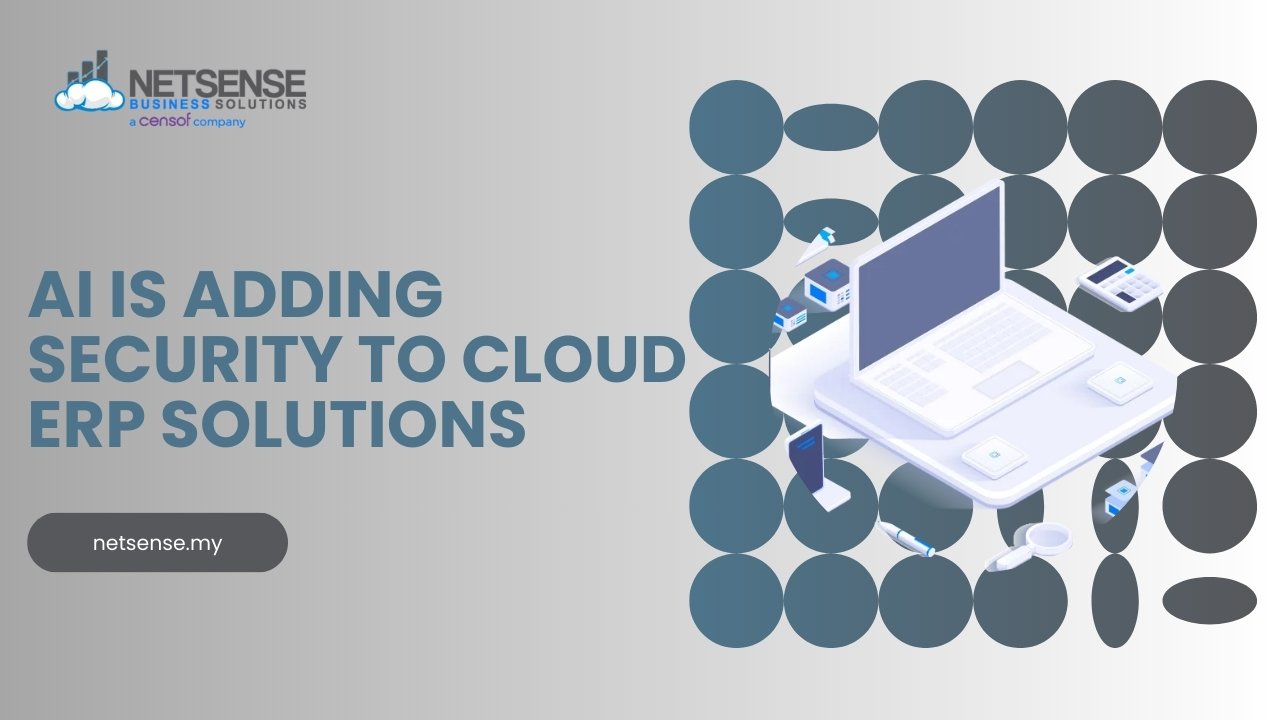In the digital-first era, Cloud ERP systems serve as the backbone for modern enterprises, bringing together finance, operations, supply chain, HR, and many other enterprise functions under one platform. However, with all this connectivity comes risk.
Artificial Intelligence (AI) can change the Cloud ERP security approach by transitioning your security posture from reactive defence to proactive security.
Let’s take a look at how AI is changing the Cloud ERP security approach, and why you should put your business in a position to adopt AI security tools.
Anomaly Detection That Never Sleeps
Envision a security system that never sleeps, tracking every transaction and point of access in real-time. That is exactly what AI-powered Cloud ERP systems do.
AI continuously tracks and analyses patterns in data, and can immediately identify unusual activity, including an employee suddenly gaining access to massive volumes of company-sensitive data or financial transactions.
It identifies unusual behaviour long before a breach actually happens. These systems bring anomaly detection into real-time, not days later after it occurred.
Faster Incident Response: AI-Fuelled, Not Human-Lagged
When an alarm sounds, every second matters. AI doesn’t wait for someone to spot the problem—machine learning models can identify threat types, escalate incidents, and even automatically handle minor responses.
For example, an AI research system using a Random Forest model reached 90% accuracy in classifying network threats and 96% accuracy in malware analysis, delivering quick and precise cyber incident detection.
Real-Time Threat Detection and Cyber Resilience
Traditional rule-based security systems often struggle to keep up with sophisticated, ever-changing threats. AI, on the other hand, learns and adapts.
A recent study showed that AI-powered cloud security systems achieved impressive results—97.3% detection accuracy, an average response time of 18 ms, and 99.999% availability. That’s enterprise-level reliability in action.
Predictive Analytics & Behavioural Threat Guardrails
AI doesn’t just detect and respond; it also predicts. By analyzing system behavior and network traffic over time, AI can spot anomalies that may indicate malicious activity.
One study on cloud AI security highlighted its use of predictive analytics and behavioral threat detection, even suggesting ways to combine AI with encryption and advanced computing models for stronger protection.
Built-In Compliance Monitoring
Keeping up with regulations like GDPR, SOX, or HIPAA can be a full-time job. AI in Cloud ERP systems helps by automating much of this work—monitoring data usage, spotting unauthorized access, and creating audit-ready logs.
Cloud consulting experts note that AI-enhanced Cloud ERP solutions are especially good at automating compliance and controls, giving regulated industries greater peace of mind.
Strength in Numbers: Cloud + AI = Security Superpowers
Cloud-native ERP systems already benefit from top-tier infrastructure—think automatic patching and global redundancy.
Add AI to that mix, and you double down on protection. AI continuously assesses access patterns, tightening identity and access controls, while cloud infrastructure furthers security with built-in defensive layers.
Final Thoughts
AI isn’t just a “nice-to-have” anymore—it’s essential for keeping Cloud ERP secure, flexible, and strong. From spotting unusual activity in real time to predicting threats before they happen, AI-powered Cloud ERP is your best defence in a constantly changing cybersecurity world.
At NetSense, we’re dedicated to using AI-driven security with our customized Acumatica ERP, so you can feel confident that your data, processes, and teams are always safe.
